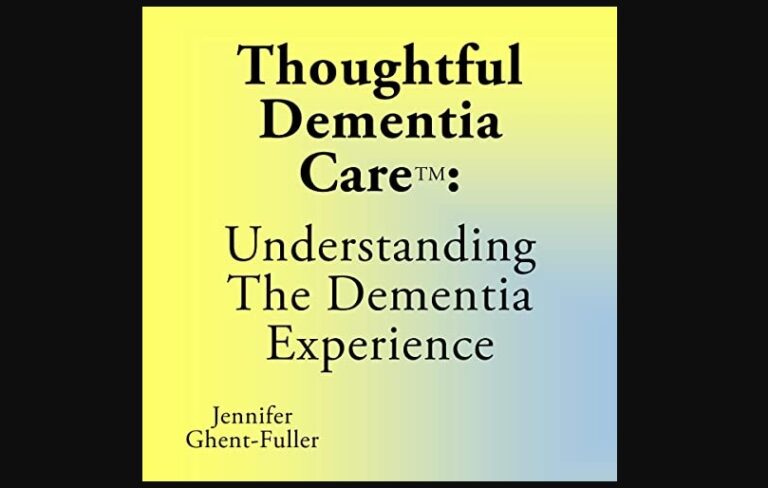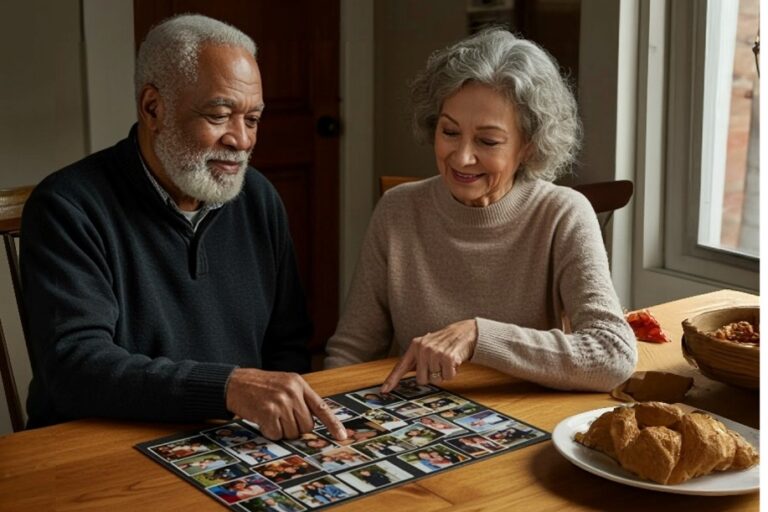
Thoughtful Dementia Care – Understanding the Dementia Experience
BOOK OF THE WEEK: Thoughtful Dementia Care is today’s best book on understanding the dementia experience. An easy-to-read, sensitive portrayal of managing the world of dementia.

BOOK OF THE WEEK: Thoughtful Dementia Care is today’s best book on understanding the dementia experience. An easy-to-read, sensitive portrayal of managing the world of dementia.

INCLUDES PRINTABLE CAREGIVER RESOURCE: Can an old song brighten the day of people with dementias such as Alzheimer’s? Can a childhood memory help bring back clarity and connection? An uplifting study offers useful answers.

“Sundowning” describes agitation and anxiety often felt towards the end of the day in dementia. See what it is and what you can do about it.

Rosemary naturally works like Aricept® (generic: donepezil), treating Alzheimer’s by blocking AChE. Learn about rosemary’s dementia-fighting benefits from Dr. J. Duke.

Alzheimer’s is characterized by an overproduction of free radicals in cells. That’s why incredibly tiny “nanoparticles” of silver, found in supplements, cosmetics and food packaging, worry scientists. Hear their concerns, as well as products to avoid.

Researchers discovered AWE to be a potent predictor of reduced pro-inflammatory cytokines. Can the awe we feel when touched by the beauty of nature, art and spirituality protect us from Alzheimer’s high levels of cytokines?

Copper hits the brain with a one-two punch. It inhibits clearance of, AND it stimulates production of, Alzheimer’s plaque. See why copper is a key player in Alzheimer’s.

Meals have always been the time to gather, share, and celebrate life. Make
meals more meaningful, foster social connections, and bring people closer together with a custom, one-of-a-kind photo placemat.

With dementia, it’s not just what you eat – it’s also how and where!

STRESS affects Alzheimer’s risk. Find out how. Learn 10 ways to de-stress and relax.

Selling Alzheimer’s books takes time – buyers rarely commit right away. Smart authors plan for the long game, offering gentle, repeated reminders to buy. No tool does this more effectively or simply than the Alzheimer’s & Dementia Weekly Newsletter service. Keep your book—and its message—at the center of your readers’ attention.

SHORT-TERM MEMORY lapses are obvious signs of Alzheimer’s, but other tell-tale signals begin to show much earlier. Learn how to look for semantic impairments, such as simple questions about size.

Discover compassionate, practical and proven strategies to navigate dementia care confidently, ensuring the well-being of both you and your loved one.

SHORT-TERM MEMORY lapses are obvious signs of Alzheimer’s, but other tell-tale signals begin to show much earlier. Learn how to look for semantic impairments, such as simple questions about size.

Three important dementia studies focus on HS-AGING, a type of dementia almost as common as Alzheimer’s in the 85+ group. Yet few people have heard of it. Why? What makes it different?

An intriguing study of 120 grandmothers might surprise you. Doctors know socially engaged people have better cognition and less dementia. But can a person get too much of a good thing? What’s the right balance?

Enjoy this great duet between a musician with dementia and his son. A triumph of spirit over Alzheimer’s! Sing-a-long if you like!
No spam, only news and updates.


